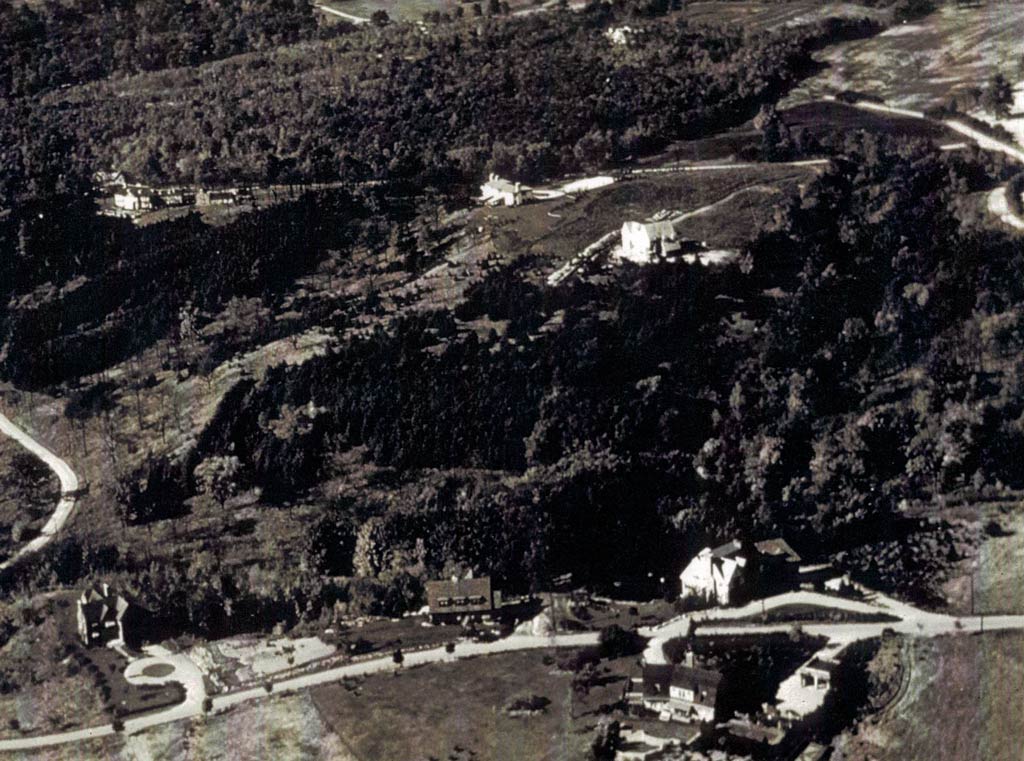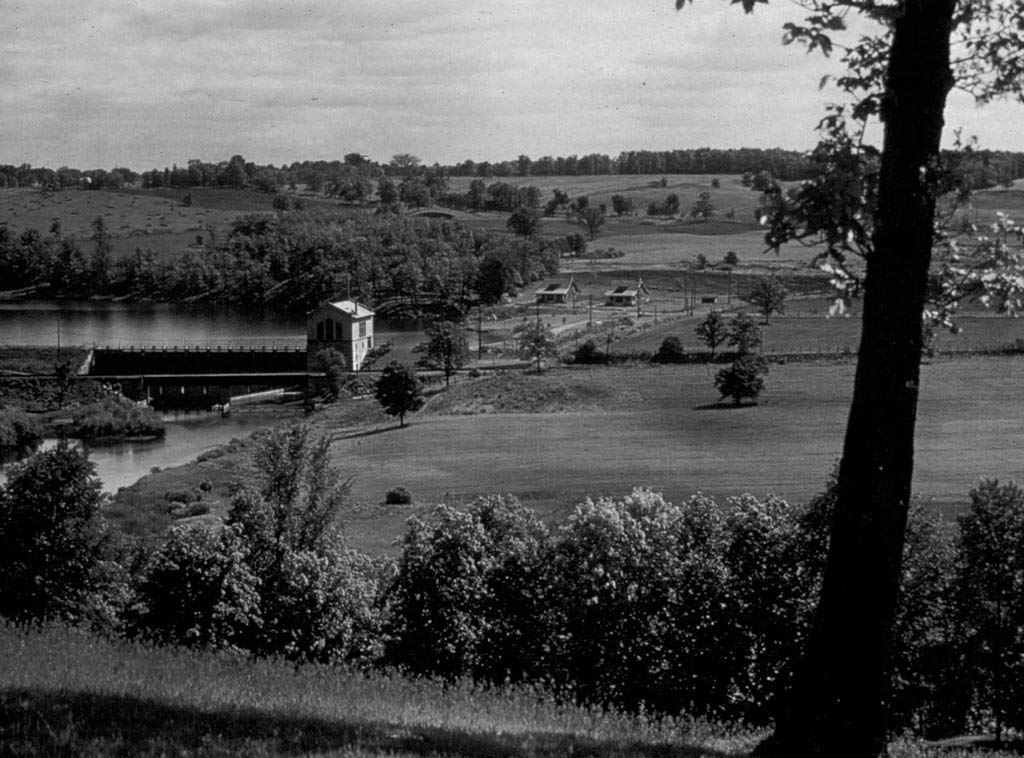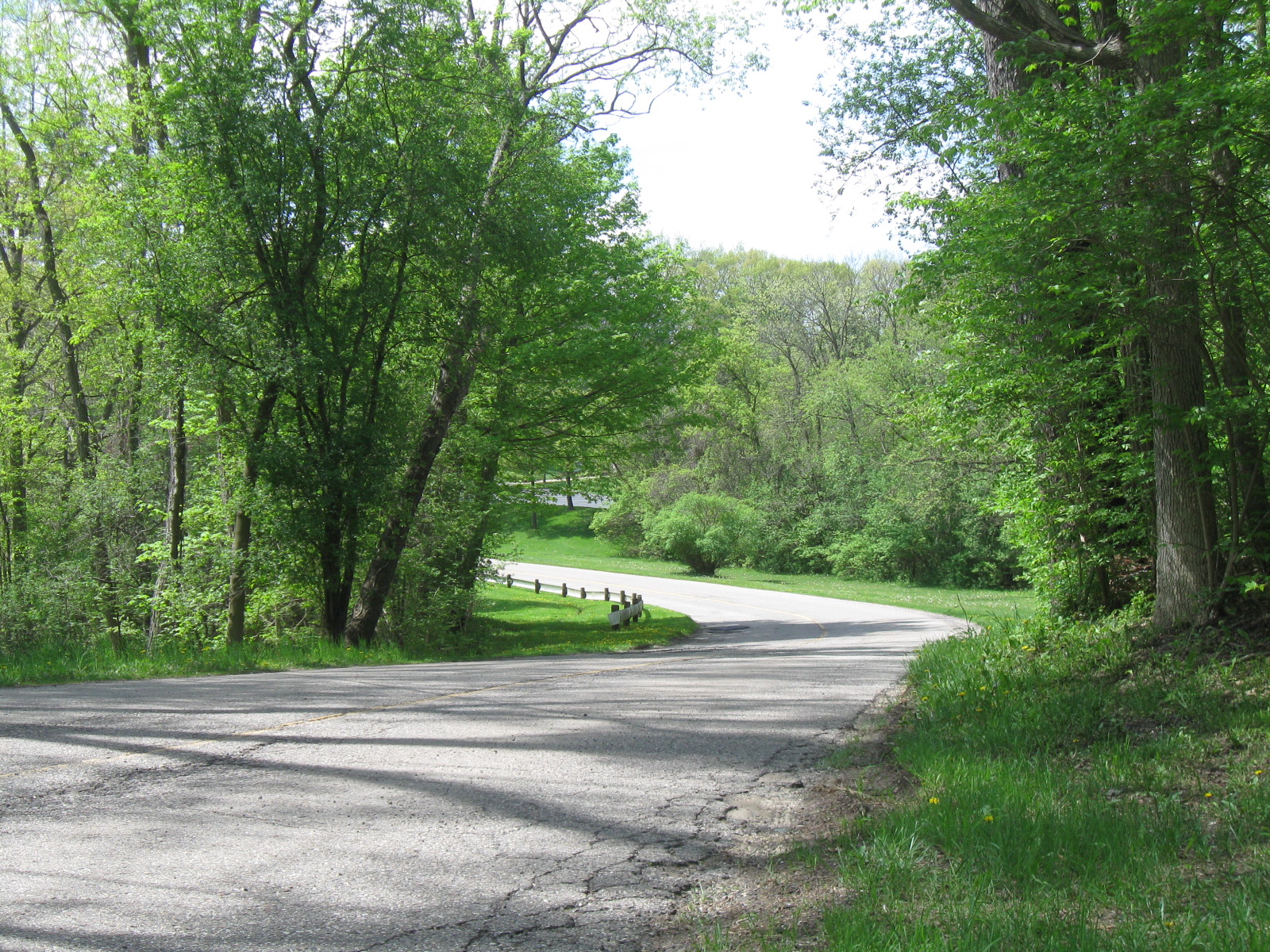Protecting, preserving and nurturing the unique character of the Barton Hills community

THE VISION
The early 1900’s were an exciting time of innovation and technology, including the growing demand for electric service. While several private electric companies vied for position it was Detroit Edison that prevailed under the leadership of Alex Dow. By 1906 Detroit Edison was purchasing properties along the Huron River where hydropower could be developed, including the site where Barton Dam was constructed in 1912-13.
Rather than sell the excess land along the river, Dow envisioned a community of stately country homes in a beautiful setting. National emphasis at the time on conservation and protection of natural resources meshed with Dow’s deep love of nature. He gathered the extra acres into the Huron Farms Company and in 1915 hired William Underdown to manage it. He also hired Olmsted Brothers of Brookline MA to design the new community.
BUILDING THE COMMUNITY
Olmsted Brothers was the nation’s first and leading firm of landscape architects, driven by the conviction that the health and welfare of people would be improved by living in harmony with nature. Along with their signature project of New York City’s Central Park they designed numerous landscapes. The Olmsteds’ Barton Hills plan featured an upper drive on the ridge and a lower drive along the water, with a country club on a prominent hill and residential lots of varying sizes. Dow’s wife Vivienne chose a centrally located lot with a panoramic view of Barton Pond for their 20-room country estate. William Underdown’s home, Barton Hills Country Club and three Edison employee houses near the dam were built as Dow’s vision began to take shape.
Barton Hills Maintenance Corporation was created in March 1922 to provide maintenance services, manage lot sales and establish governing structure. In 1925 the Olmsteds sketched out an extension of the community all the way to Foster Bridge but response didn’t match Dow’s dreams. As sales slowed, a 1931 advertising brochure emphasized architectural diversity and how smaller homes would blend harmoniously with larger ones. Rather than attracting Detroit executives, buyers were coming from the rapidly growing local Ann Arbor/University of Michigan area.


TODAY
Faced with mounting expenses, Detroit Edison offered to transfer ownership and management of the community to its residents, along with significant financial support to ease the transition. By 1945 Barton Hills Maintenance Corporation was led by residents and Barton Hills Improvement Association had been formed to continue lot sales. Post-war homes included a number of Modern designs. A new caretaker was hired to replace the last of the Edison employees–a young farmer named Walter Esch.
In 1973 Barton Hills again transitioned, becoming the first home-rule Village in Washtenaw County. With most lots sold, Barton Hills Improvement Association was dissolved. Barton Hills Village took on maintenance tasks generally associated with a municipality, while Barton Hills Maintenance Corporation retained significant responsibilities unique to the community.
Today, Barton Hills Maintenance Corporation administers the private covenants of Barton Hills property, ensuring that the foundations of the Dow/Olmsted legacy continue. Values such as harmony of residences with the natural surroundings, protection of original lot designations, respect and conservation of natural resources, and community leadership are balanced with healthy growth, thoughtful change and innovation to serve new generations of residents.

TODAY
Faced with mounting expenses, Detroit Edison offered to transfer ownership and management of the community to its residents, along with significant financial support to ease the transition. By 1945 Barton Hills Maintenance Corporation was led by residents and Barton Hills Improvement Association had been formed to continue lot sales. Post-war homes included a number of Modern designs. A new caretaker was hired to replace the last of the Edison employees–a young farmer named Walter Esch.
In 1973 Barton Hills again transitioned, becoming the first home-rule Village in Washtenaw County. With most lots sold, Barton Hills Improvement Association was dissolved. Barton Hills Village took on maintenance tasks generally associated with a municipality, while Barton Hills Maintenance Corporation retained significant responsibilities unique to the community.
Today, Barton Hills Maintenance Corporation administers the private covenants of Barton Hills property, ensuring that the foundations of the Dow/Olmsted legacy continue. Values such as harmony of residences with the natural surroundings, protection of original lot designations, respect and conservation of natural resources, and community leadership are balanced with healthy growth, thoughtful change and innovation to serve new generations of residents.
